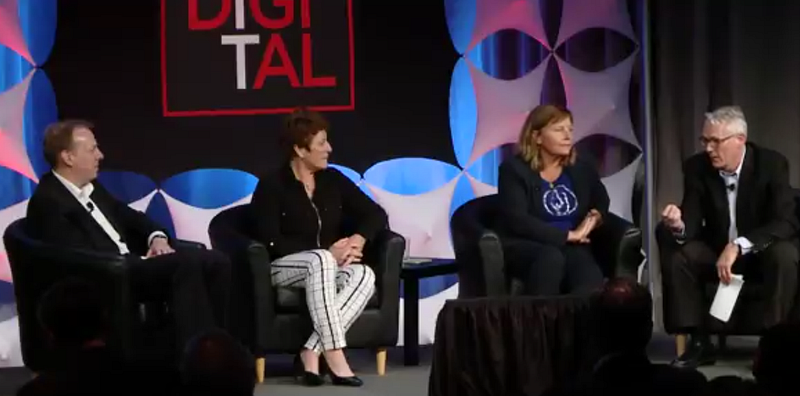
It’s axiomatic that legacy industries face more obstacles than “born-digital” companies when it comes to implementing transformative technologies. It’s also true that there’s much more risk in standing still than in forging ahead — and legacy firms are heeding the call.
Executives at both startups and traditional firms discussed their risks and rewards during the recent 2018 Platform Strategy Summit, held at MIT. All agreed that platform marketplaces have become game-changers that have disrupted established industries such as retail, travel, and transportation by creating new models — namely, Uber, Airbnb, and Amazon, among others.
By contrast, the entertainment and healthcare industries are newer to the scene, and their dynamics were featured during panel discussions at the event. Entertainment has its share of platforms, notably Spotify and Pandora, and healthcare is just beginning to test out platforms that connect networks of providers, partners, and patients. The key now is for platforms to reinvigorate, digitize, and monetize participation across the value chain.
“Consumers have online access [to music] through Spotify — that was a shift that started about 20 years ago when Napster was developed,” noted Joe Bellioti, Founder of NOISEGATE, a consultancy at the intersection of brands, music, and technology. Now, he said, the goal is “having access versus ownership as the default.”
Life After Advertising
Industry dynamics are changing dramatically, he said, and “the advertising world is about to get completely disrupted.” As an example, he pointed to “the largest TV network in the world, Netflix, which has no advertisements. That was the bread and butter of advertising.” But viewing is all driven by consumer behavior now, he said.
What will replace the traditional advertising model? Platforms will likely play a key role. Nathan Hanks, CEO, Music Audience Exchange, offers “music promotion for brands. If you’re listening to Pandora, watching YouTube, are on social media, or maybe even at a live show, and an artist is thanking a brand for support of their music, their single release, or their tour, we put those deals together through a platform.”
Also thinking outside the traditional entertainment box is Fabrice Sergent, Managing Partner of Bandsintown. After launching an app in 2012, “I was able to grow Bandsintown as a platform connecting 43 million music fans, with 450,000 artists… and this growth has been organic; we never advertised.”
Segent’s two-sided platform — which has morphed into an AI -based recommendation engine and go-to source for concert information — is valuable to the artists for name recognition, especially for those new to the scene. Talking about network effects, Hanks said, “the more people that join the platform, the more ticket sales increase.” In addition, he said, revenue is more widely distributed than with previous models.
Changing Medical Mindsets
From a totally different direction, healthcare providers are gravitating to platforms, too, but they often have to overcome entrenched practices, regulatory hurdles, and potent competition. “There’s always going to be that fine line between regulation, safety, and innovation, said Alice Raia, VP, Digital Presence Technologies Kaiser Permanente, one of the largest health delivery systems in the U.S. “But if you have a mindset that innovation is just part of your process and part of your delivery system, you can be more successful.”
Thomas Friese, VP for Digital Ecosystem Platforms at Siemens Healthcare, may be on the right track when he described the need for “healthineers” — a combination of engineers and healthcare pioneers, who are creating a cloud-based, added-value service platform at Siemens. “We opened APIs, and we are building a new kind of environment where we hope to change from providing sick-care to providing healthcare services.”

Nevertheless, the pressure is on when tenacious, new, outside competitors jump in. For instance, more details are now emerging about the deal — announced in January — in which Amazon, Berkshire Hathaway, and JPMorgan Chase & Co. are partnering to address healthcare for their more than 1 million U.S. employees, using technology solutions. Effective July 9, the group named Harvard Medical School Professor, Dr. Atul Gawande, as CEO.
What platform options might the venture pursue? According to a Marketwatch opinion piece: “Imagine an easy-to-use platform where patients can readily assess the price and quality of competing providers and quickly schedule appointments, or perhaps even initiate an online consultation. We bet Dr. Gawande is imagining it.”
Even giant healthcare corporations facing this type of scenario need to think hard about the question posed by one of the Platform Strategy Summit co-directors, Geoffrey Parker, who asked: “Which of you will build the Amazon, the Uber, or the Airbnb of healthcare? And what would that look like?”
